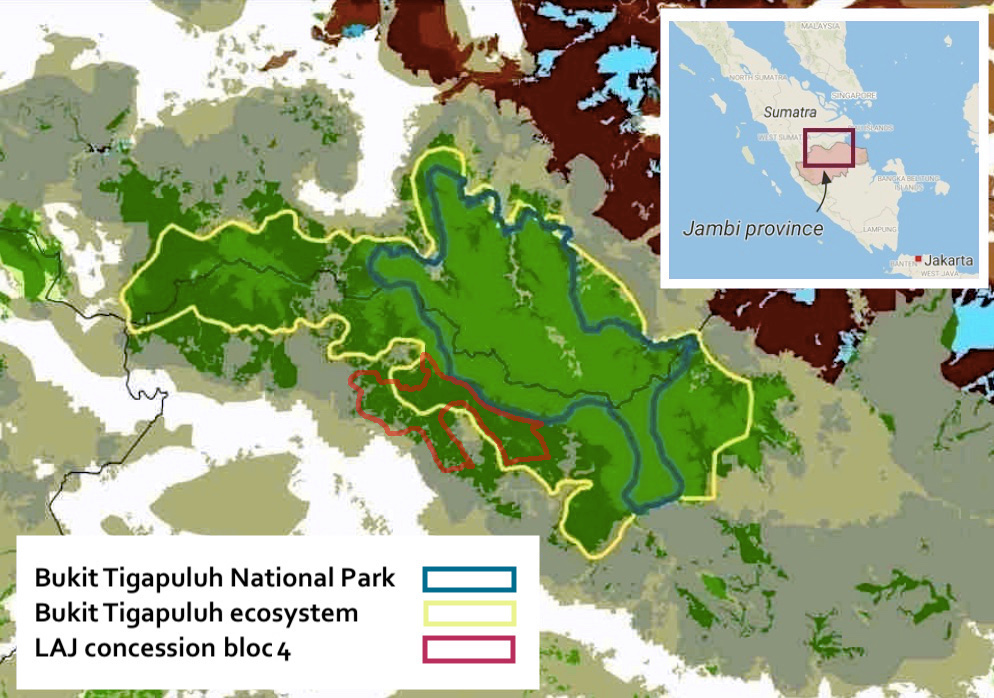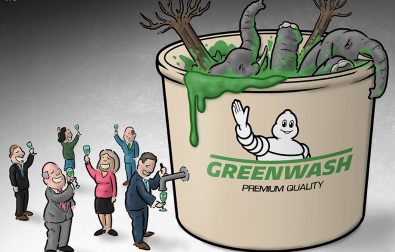Chapter 5
The island of Sumatra, in Indonesia, is home to one of the last remaining habitats for endangered tropical species such as elephants, tigers and orangutans. In recent years this landscape has been subjected to unbridled clearing, for timber, for rubber, and by illegal small-scale farmers. For several of those years, French tyre giant Michelin invested in the region in partnership with its Indonesian partner, the conglomerate Barito Pacific Group.
👉 All the articles from our investigation are available here.
Financed by so-called "green" bonds, their rubber plantations were supposed to represent a form of reforestation. The tyre giant could thus claim to be protecting endangered animals while reducing its carbon footprint. In previous chapters, we revealed how Michelin and Barito were able to issue their certified sustainable bonds. The bonds were issued through the Tropical Landscapes Finance Facility (TLFF), a financing platform for projects related to the Paris Climate Agreement (see Chapter 1). TLFF was co-created by international stakeholders including the United Nations Environment Programme (UNEP) and the French bank BNP Paribas, as we revealed in the previous chapters of this investigation.
We explained how these plantations, owned by Royal Lestari Utama (RLU), a joint venture between Michelin and Barito, were set up on supposedly protected land on the edge of the Bukit Tigapuluh National Park ("Thirty Hills" in Indonesian), whose vegetation had been destroyed in a clear violation of green-finance criteria.
This habitat was reduced to almost nothing by the combined effect of RLU's industrial deforestation and the more "artisanal" deforestation carried out by illicit local farmers. It was against this grim backdrop, mostly hidden from investors, that Michelin and Barito Pacific took advantage of green bonds.

RLU's responsibility was finally acknowledged by Michelin in a recent exchange with our colleagues at Mediapart. Some of the project’s investors also recognised the abuse that had taken place. "No one is disputing what happened in the past, our aim is to do things differently", said Lisa Genasci, CEO of ADM Capital Foundation, during a meeting in December 2020 of her investment fund, the other co-founders of TLFF, and the NGO Mighty Earth. Voxeurop was able to consult the minutes of that meeting.
Michelin refunded the investors for the green bonds in summer 2022, after fully buying out RLU, in which it had previously held a 49% stake. The TLFF has since been disbanded and RLU has stopped commissioning progress reports from independent consultants. The latest report, covering 2022 and 2023, was published on 27 May 2024. Written directly by RLU, it makes no reference to the sustainability commitments made to green bond buyers, nor to the specific conservation targets that were previously quantified annually. We asked Michelin the same day some questions about the content of this report, but the group said it was not in a position to respond quickly.















